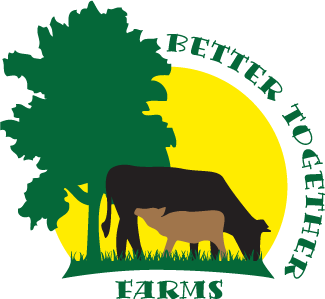NONE of Better Together Farms' produce is certified organic as of April 2019. While we still follow the organic standards as much as possible, I realized that the community-building part of our "Better Together" values means we will never be so large or so removed from our customers that our customers would value certification over seeing for themselves or talking to us about how we raise their food.
What does "certified organic" mean?
Skinny: No synthetic fertilizers, chemicals, genetically modified organisms, sewage sludge or ionizing radiation can be used in the production of organic foods. Organic livestock must be fed only organic feed (without animal byproducts) and added hormones cannot be used. Animals may not be raised in cages or confined feedlots, must have access to the outdoors, and ruminants must have access to pasture. Livestock transport time is also limited.
For more consumer-friendly information, see ThinkCanadaOrganic.ca.
What is Regulated? Due to the prevalence of pesticides in conventional North American agriculture, Canadian organic standards regulate how food is produced and endeavour to minimize the potential for contamination. (In contrast, some organic regimes in other countries test a sample of the final produce for pesticide content.) Details can be found in "Organic Production Systems - General Principles and Management Standards" document from the Public Service and Procurement Canada website. Canada's National Organic Standards are this document plus the "Permitted Substances List" also found at the above link.
Regulation and Enforcement: Standards for organics in Canada are set at the national level and enforced by independent certifying bodies. Ontario products sold interprovincially or internationally as organic must meet the Canadian National Organic Standards. Certification includes annual submission of an organic system plan and third party inspection of farm fields and processing facilities. Note the loophole: "organic" is not defined for Ontario products sold within Ontario, so anyone in those circumstances can say their product is "organic".
